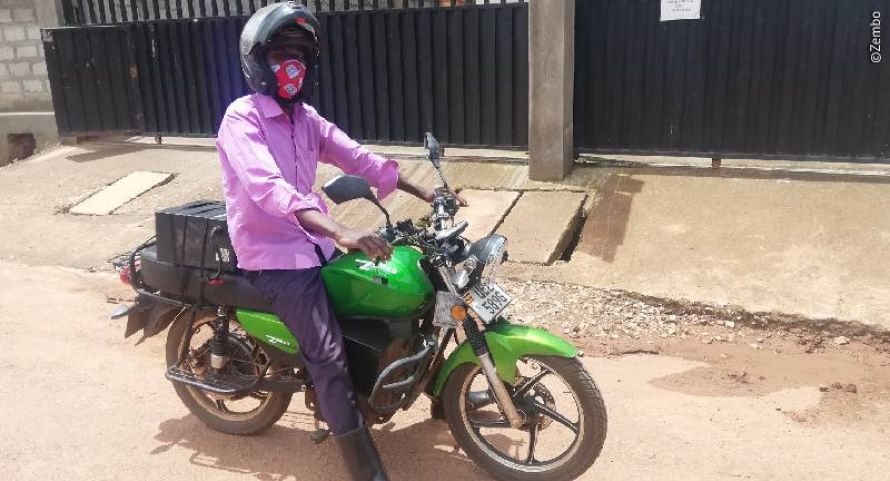Boda boda taxis: First charging stations outside Kampala for solar-powered electric motorbikes are coming

Stinking, rattling, CO2 emissions, that’s a thing of the past – at least for the electric motorbikes charged by solar power as piloted in a project of GBE Uganda
More than 150,000 new motorbikes are put on the road in Uganda every year. Most of them serve as boda bodas – the country’s typical motorbike taxis. The boda boda industry faces major challenges, including high maintenance costs, expensive fuel and a low ownership rate among drivers. This makes it difficult for drivers to generate sufficient income for themselves and their families.
To test and illustrate the high potential for e-mobility in peri-urban and rural Africa, GBE Uganda has launched a pilot project with electric motorbike operator Zembo Motorcycles. With GIZ support, Zembo will build an e-mobility route between the capital Kampala and the next larger provincial town of Masaka. By setting up three off-grid and one grid-connected solar hybrid charging station, the batteries of electric motorbikes will be charged at intervals of 30 kilometres along the important transport corridor.
The main objective of the project is to build and operate the first route for solar-powered charging stations for e-vehicles outside the capital Kampala, thus proving that economic operation is possible.
With a charging capacity of 20 clean solar-powered motorbike batteries per day per station, Zembo will be able to offer an alternative to petrol-powered motorbikes in urban and rural areas. 18 new boda boda riders outside Kampala are expected to become owners of their own boda boda through the “rent to own” approach, generating additional demand for the charging stations.
The project is expected to create ten new jobs for battery changers and technicians, half of those working at the new charging stations will be women. The solar operation saves a good 24,000 litres of fuel and thus 50 tonnes of CO2 emissions per year.
The learning experiences of this pilot project will be processed and made available to private and public actors in the sector. Above all, the Ugandan Ministry of Energy and Mineral Development is to be enabled to create good framework conditions for a rapid spread of e-mobility in Uganda.




